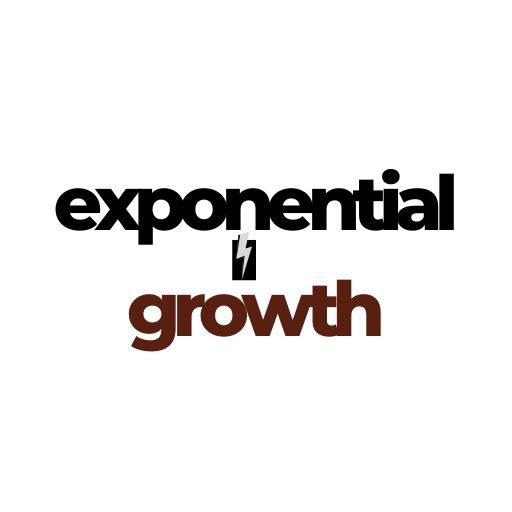- InvestCloud unveils private-markets account offering
- Aditya Birla Sun Life Multi Asset Allocation Fund performance review analysis for December
- BlackRock says 1-2% a ‘reasonable’ Bitcoin portfolio allocation
- Weekly market commentary | BlackRock Investment Institute
- Financial Giant BlackRock Endorses Up to 2% Bitcoin (BTC) Allocation in Multi-Asset Portfolios: Report
Close Brothers Asset Management’s asset class heads share their insights on asset allocation and positioning into 2025 across the firm’s fund range.
Bạn đang xem: Close Brothers AM Overweight In Equities In 2025
Giles Parkinson, head of equities and manager for the Close
Portfolio Funds at UK-based Close
Brothers Asset Management, highlighted this week how he has
reversed his cautious stance on markets for over a year and has
become the most optimistic he has been since managing the Close
Portfolio Funds.
“As long as there are no signs that the United States has entered
a recession, we will maintain an overweight stance on equities,”
Parkinson said in a note.
Fixed income
Andrew Metcalf, head of fixed income and manager for the firm’s
Sustainable Select Fixed Income fund, thinks that lower
inflation, lower and falling Central Bank policy rates, and
higher yields in risk-free bonds are a solid foundation for fixed
income markets in 2025. “Just as important however is the
increased certainty we can add to this already solid footing:
elections in the UK, US, Japan and France have removed some of
the major geopolitical unknowns facing markets in early 2024,”
Metcalf said.
While forecasting the future is difficult given the huge number
of variables involved, Metcalf takes comfort from the
relatively benign macro-economic outlook in the UK, especially
around target inflation; expectations of political stability
under the Labour government and relatively attractive yields in
low-risk government bonds. As a result – and coupled with his
ability to discern corporate bonds with adequate yields – he
enters 2025 in a cautiously optimistic mood.
US in good shape
Matthew Stanesby, head of collectives and James Davies, managing
director, managers of the Close Managed Funds, highlighted how
the US economy is in broadly good shape and there’s the potential
for US companies to continue to grow earnings. They think the UK
and Europe look relatively cheap compared to the US and present
opportunities to allocate funds at relatively attractive
valuations.
The Close managers are broadly positive on risk assets –
meaning equities and credit (or corporate bonds); they
think most developed markets should avoid recession. Davies
and Stanesby aim to position their equity allocation to
include a good spread of value and growth managers on the basis
that while they want to benefit from the growth areas of the
market, they are also cognisant that some sectors may be
unjustifiably expensive to buy, including some tech.
In the US, the UK, and Europe, the managers have increased
their exposure to small and medium-sized companies as these are
cheap relative to their long-term valuations and should benefit
from interest rates coming down, particularly if respective
domestic economic growth accelerates.
Davies” and Stanesby’s view of government bonds is a bit
more cautious given the fiscal spending plans for governments
across the developed world. They think the increase in supply of
government bonds may keep yields on offer higher than in the last
decade. They want to maintain a healthy position to select
diversifiers/alternatives within their funds like infrastructure
and gold, in addition to some hedge strategies. Historically
these have provided alternative sources of return, as they did
during the pandemic, and more recently the strong performance of
the gold price over the last 12 months.
China and Asia
Weixu Yan, head of passives and manager for the Close Tatical
Select Funds highlighted how he has greater certainty in 2025 –
with Trump in the US, Labour in the UK, and major economies in
decent condition. Even if economic worries reassert themselves in
2025, he knows most developed markets are equipped with monetary
policy tools to ease and stimulate.
This peace of mind helps him to feel broadly positive on risk
assets. Yan too is positioning his equity allocation to
capture both value and growth factors, mainly through a
relatively high weight in UK equities, which predominantly
consist of more-traditional value sectors and companies. However,
he remains overweight in tech in the US. Yan
seeks more targeted exposures – whether sectors or thematic
– that would benefit from Trump’s future policies, potential
further China stimulus and an environment where company
fundamentals drive stock market performance rather than
sentiment.
In fixed income, Yan seeks lower duration or interest rate
risk sensitivity to get closer to a neutral position by buying
shorter-dated maturities. He also looks to take some profits
on gold.
Yan has also made new exchange-traded fund (ETF) launches in
infrastructure, growth assets in more concentrated mega-cap names
as well as numerous small-cap exposures.
Alternatives
Alec Slater, head of alternatives emphasised how his
diversifying/alternative investments offer low correlations to
more mainstream asset-classes and repeatable patterns of returns
relative to his equity and fixed income allocations.
“It has been a difficult environment for real assets with desired
rates of return rising in step with, and closely correlated to,
gilt yields,” Slater said. But he sees decent yields across
assets which have been beneficiaries of inflation, thereby
offering an increasingly attractive real return with
inflation-linked contracts that are still feeding into their
long-term defensive cash-flows.
“Across investment trusts, it is positive to see mergers creating
larger, more economical and liquid options for investors which
should make the sector more resilient for the future. We believe
that we are now in a sweet spot where we see strong fundamentals
yet discounts to fair value. We expect a continued acceleration
in deal-making into 2025 with improving access to debt financing
and record dry powder improving the significant lag in exit
activity: pricing tension between willing buyers but reluctant
sellers has resulted in ‘deal-freeze’ which we think is set to
thaw,” Slater continued.
“Hedge Funds are set to continue to benefit from cross-asset
volatility with alpha (a measure of out-performance against a
benchmark) on the rise,” he added. “New survey data shows that
hedge funds are now one of the most in-demand asset classes for
institutional investors,” Slater concluded.
Nguồn: https://exponentialgrowth.space
Danh mục: News

